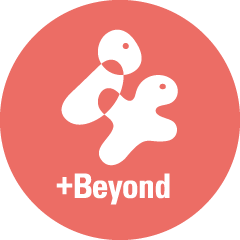Inochi Declaration
Confront social challenges on the foundation of liberal arts, practice mutual-aid management, propose pathways toward a sustainable society, and share values that will guide the future.
The theme of the Expo 2025 Osaka, Kansai, Japan—Designing Future Society for Our Lives—asks each of us: what kind of future should we create? Since the 1980s, the pursuit of efficiency rooted in neoliberalism has yielded both benefits and costs: while achieving economic prosperity, it has also caused growing disparities and severe environmental degradation. Continuing this path will not lead to a sustainable future. Now is the time to fundamentally rethink our way of thinking.
In recent years, frameworks such as the SDGs (Sustainable Development Goals) and ESG (Environmental, Social, and Governance) management have gained attention. They serve as important frameworks that encourage corporate activities with an emphasis on sustainability. However, rather than perceiving these as externally imposed mandates or fleeting trends, it is essential to approach them based on intrinsic motivation. When companies speak of “sustainability” or “social responsibility,” their true value lies not in superficial initiatives but in the genuine will to shape the future.
To nurture such intrinsic motivation, it is crucial for business leaders to engage deeply with timeless wisdom and cultivate their ability to think independently. The foundation for this is liberal arts. Through the study of fields such as philosophy, literature, and history, liberal arts education reexamines the essence of humanity and connects us with the accumulated wisdom of humankind across time and space. This learning offers profound insights and fresh perspectives on today’s complex challenges.

Establishment of a “Mutual-Aid” Platform
One initiative that embodies this philosophy is the leadership development program conducted by the Aspen Institute Japan, where leaders engage in dialogue through “Classics and Dialogue” seminars. Over the past 25 years, many executives have participated. At the Aspen Institute, participants engage in dialogue on classical texts from around the world, creating time to ponder the fundamental questions of what it means to be human—beyond shortterm profits and efficiency. Through such learning, leaders develop the strength to continuously ask: “What is right?” and “What is valuable?”—providing them with a compass for the future.
Additionally, the Japan Association of Corporate Executives, in collaboration with organizations like the Public Interest Capitalism Institute and the Impact Startup Association, has established a platform to advance the concepts of “Mutual-Aid Capitalism” and “Mutual-Aid Management.” This initiative promotes systems in which companies contribute to solving social issues based on purpose and empathy. By leveraging corporate resources and innovation and collaborating with the social sector, they aim to enhance sustainability across society. Within these activities, new models for the economy of the future are being explored.
Recently, there has been increasing emphasis on the importance of humility—recognizing that humans are merely one form of life among many. We tend to fall into anthropocentrism, but we must not forget that we are beings who are given life within nature. We need deeper gratitude for the air we breathe, the water we drink, and the food we eat—all of which are gifts from the great life system that is the Earth.
This recognition reminds us that humans are part of the web of life and encourage decision-making with a planetary perspective.
The Inochi Forum plays a vital role as a place to share such fundamental questions and explore directions for the future. Here, we are called to return to the essence of life itself and envision the future from a perspective that transcends specific topics like economics, technology, or the environment. Through such dialogue, we should not merely share knowledge but build a new vision for society centered on Inochi and translate it into concrete action.
Through the experience of the Expo 2025 Osaka, Kansai, Japan, what Japan should present to the world is not merely technological or economic strengths. More importantly, we must demonstrate values grounded in profound respect and humility toward all Inochi that will live into the future.
The Inochi Forum will continue to engage in dialogue with diverse people, persistently questioning what kind of values we should present to future generations.
[References]
・Japan Association of Corporate Executives – Platform for Mutual-Aid Capitalism:
https://www.doyukai.or.jp/newsrelease/2023/kyojo.html
・Aspen Institute Japan:
https://www.aspeninstitute.jp/
[Action Platform]
Economy, Employment and Poverty
[SDGs]


